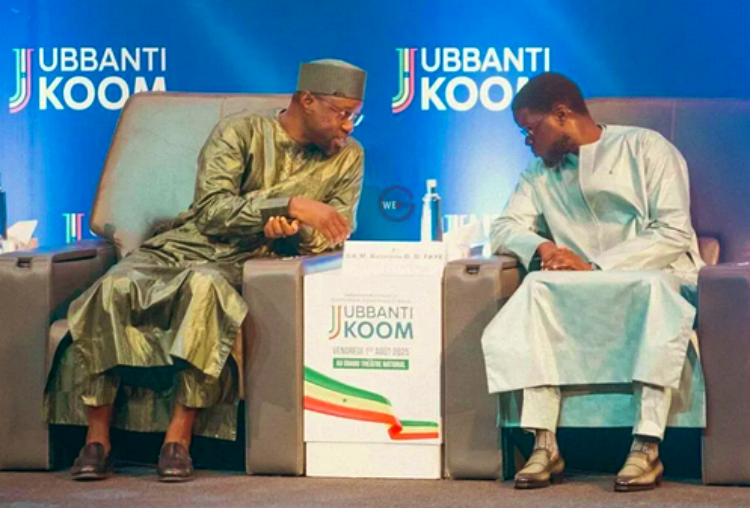Gambiaj.com – (Dakar, Senegal) – Senegal’s government has blamed the suspension of its program with the International Monetary Fund (IMF) for worsening public finances and limiting access to international markets, as the country seeks to redefine its approach to global financial partnerships.
At the launch of the National Economic and Social Recovery Plan on Friday at Dakar’s Grand Theatre, Economy Minister Abdourahmane Sarr lamented the fallout from the IMF program freeze, which followed revelations of a hidden $7 billion debt and a revised debt-to-GDP ratio of 118% in 2024.
“Following the publication of the Court of Auditors’ report, the suspension of the IMF program has placed severe strain on our public finances,” said Sarr. He added that the decision significantly hindered Senegal’s access to affordable international financing and resulted in the loss of key budgetary support.
The minister warned that the combined effect of the IMF program halt and shrinking global development assistance has created major shortfalls in funding for the government’s 2025–2029 macroeconomic framework.
He also emphasized that Senegal remains bound by fiscal discipline rules under the West African Economic and Monetary Union (UEMOA), which are enforced by an independent central bank to safeguard the regional exchange rate regime.
“These rules are meant to preserve the viability of the exchange rate system we have chosen,” Sarr noted, though he acknowledged the need for more flexibility in the medium term.
Speaking at the same event, Prime Minister Ousmane Sonko delivered a strongly worded critique of the IMF, expressing frustration over delays in negotiations and implying that the institution shared blame for Senegal’s inherited financial mess.
“Our partners bear part of the responsibility for the situation we inherited. They come every year for reviews and missions — how could they not see something this massive?” Sonko questioned.
The Prime Minister went further, suggesting the possibility of deliberate financial suffocation. “It feels like there’s an effort to choke the country economically — but we’re still standing,” he declared.
Departing from conventional rhetoric that portrays IMF support as vital, Sonko downplayed the actual economic impact of such arrangements. “The IMF program itself isn’t what sustains us. It’s a guarantee — it reassures markets and investors,” he said.
To underscore his point, Sonko cited a striking example: “Just the tax revenue from gambling generates more than what we get from the IMF program.”
The remarks reflect a broader push by the administration of President Bassirou Diomaye Faye for economic self-determination. “We’re not here to fulfill anyone’s directives,” Sonko said.
“This exercise is about giving ourselves autonomy, freedom, and sovereignty in our decision-making.”
Still, Sonko left the door open for renewed collaboration. “If the situation improves and we can have a program with the IMF, all the better — it would simply give us greater latitude to negotiate with other partners, bilateral or multilateral,” he stated.
As uncertainty looms over future dealings with the IMF, Senegal’s government is rallying around its homegrown recovery plan, which Sonko described as socially driven rather than austerity-based. Education, he said, remains the government’s top priority.
The tough stance on the IMF marks a sharp break from the previous administration’s policies and signals a reorientation in Senegal’s international financial strategy.










